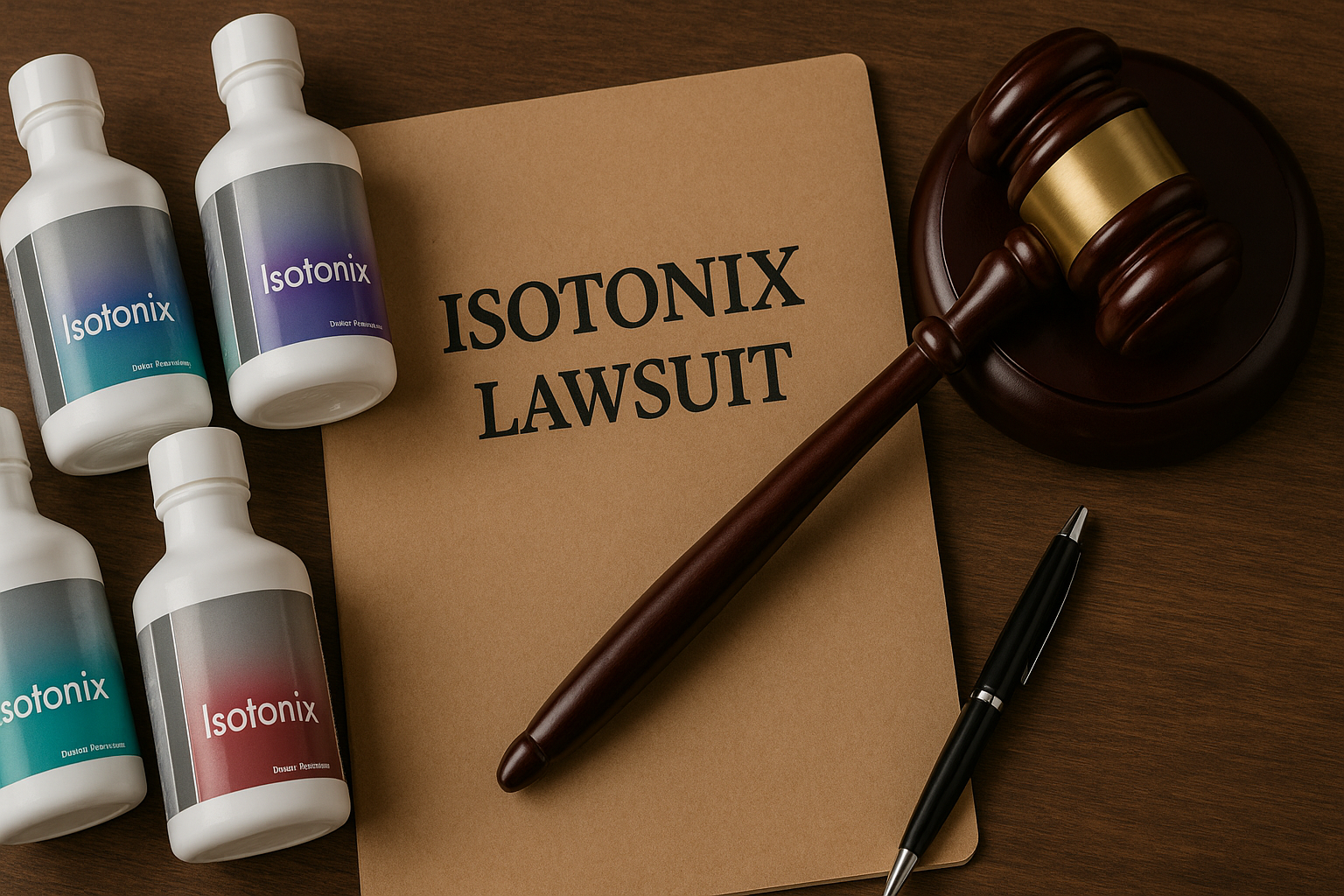What Is Isotonix and Who’s Behind It?
Isotonix is a line of dietary supplements owned by Market America, a company founded in 1992. The supplements are designed with an isotonic delivery system, which means they’re formulated to match the body’s natural fluid pressure so that nutrients are absorbed more quickly through the small intestine. Market America uses a multi-level marketing (MLM) model, where individuals (distributors) sell the products and recruit others to sell under them.
The Origins of the Legal Dispute
The legal issues surrounding Isotonix stem from several complaints by consumers and former distributors. These raise questions about whether the company has overstated product benefits, misled participants about income opportunities, and made false health or absorption claims without sufficient scientific backing. Some of the concern also centers on whether the business model functions in a way that disproportionately rewards recruiters rather than people who sell the product.
Key Allegations in the Lawsuit
- False or Misleading Health Claims: Plaintiffs allege Isotonix made claims about its supplements (for example, claims related to superior nutrient absorption or antioxidant effects) that are not convincingly supported by rigorous, independently verified research. Regulatory authorities have flagged some of these claims.
- Unrealistic Income Representations: Former distributors say that they were promised potentially high earnings, but in practice many lost money. The structure is alleged to place heavy emphasis on recruiting new distributors rather than actual product sales.
- Regulatory Violations: Market America (Isotonix’s parent company) received a warning from the U.S. Food and Drug Administration in 2020, which detailed problems such as misbranding of some Isotonix products (incorrect serving sizes, unapproved health claims, labeling issues) and failures around reporting adverse events.
FDA Warning: What It Said
In 2020, the FDA issued a formal warning letter to Market America concerning several Isotonix products. Among the issues noted were misbranded dietary supplements — for instance, problems with serving size declarations, labeling that didn’t meet regulatory requirements, and claims of health benefits that turned Isotonix products closer to making drug claims without FDA approval. The agency also pointed out that certain serious adverse event reports associated with the supplements were not submitted as required.
Status of Lawsuits & Consumer Claims
One notable case is Chuanjie Yang et al. v. Market America, Inc., filed in 2019. The plaintiffs accuse the company of operating a pyramid scheme, false advertising, and making income claims that are unrealistic for the vast majority of distributors. The lawsuit alleges that many distributors paid significant startup fees and were required to maintain monthly purchase volumes, while those at the top of the MLM structure allegedly reaped most of the earnings.
As of 2025, some parts of the legal actions are still in progress, while others have resulted in regulatory pressure and internal changes to marketing practices.
Defenses Raised by Market America/Isotonix
Market America has denied the major allegations, arguing that its business model is lawful and legitimate. The company claims that:
- Its MLM or “UnFranchise” structure operates within legal requirements.
- Product labels and advertising are (or are being) adjusted to meet regulatory standards.
- Third-party testing and internal quality control measures have been employed to validate the safety of Isotonix products.
- Distributors are provided with income disclosure statements and required legal disclaimers.
Impact on Consumers and Distributors
For consumers, the lawsuit has sowed concerns about product safety, truthfulness of health claims, and whether all risks (like potential side effects) were properly disclosed. For distributors, the impacts include financial losses, investments for startup or product purchases, and possible misleading expectations regarding earnings. Even for those who’ve had positive experiences, the reputational effects of the lawsuit and regulatory warnings may affect trust in Isotonix and similar brands.
Broader Implications for the Dietary Supplement and MLM Industries
The Isotonix case illustrates larger trends and tensions in the supplement market:
- Regulatory scrutiny is increasing for health claims, labeling, and adverse event reporting.
- Courts and consumer protection agencies are more attentive to MLM business practices, especially where income claims are a major recruitment tool.
- Consumers are demanding more transparency and scientific backing for products that imply therapeutic or performance benefits.
- Legal outcomes in these cases (if they result in significant verdicts or settlements) may set precedents for how other supplement companies advertise and operate their distributor networks.
What Should Potential Users Do?
If you are considering using Isotonix supplements or becoming a distributor:
- Examine product labels carefully. Look for disclaimers, ingredient listings, serving sizes, and any health claims.
- Research scientific evidence. Check if there are peer-reviewed studies or independent clinical trials supporting claims made.
- Ask for income disclosures. Many MLM companies have income disclosure documents; these show how many distributors actually make meaningful earnings.
- Keep medical records. If you experience side effects, document them and consult a healthcare professional.
- Stay updated on legal/regulatory actions. Monitoring FDA or FTC announcements can give you insight into evolving compliance of such companies.
Possible Outcomes & What to Watch For
The lawsuit could result in several different kinds of outcomes:
- A settlement between the plaintiffs and Market America, possibly involving compensation to distributors or consumers, changes to marketing materials, or refunds.
- A court ruling that affects the legality of parts of the UnFranchise or MLM model used.
- Regulatory enforcement leading to stricter labeling rules or penalty actions from the FDA or FTC.
- Reputational damage that causes adjustments in how the company operates or markets its products, even if no large judgments are made.
What to watch for includes whether the case is certified as a class action, updates on evidentiary findings, and any changes to how Isotonix products are advertised or sold.
Conclusion
The Isotonix lawsuit highlights the intersection of consumer rights, regulatory oversight, and business ethics in the supplement industry. While some claims remain allegations, the involvement of the FDA and the existence of lawsuits focused on false health claims, income misrepresentation, and MLM structure issues suggest there are real concerns. For both consumers and distributors, the case is a reminder that supplement products can carry risks—both health-related and financial—and that truth in advertising and regulatory compliance matter a great deal.




